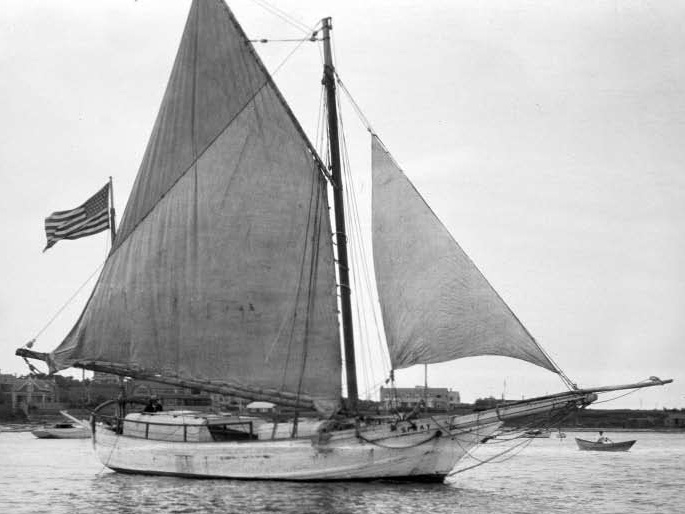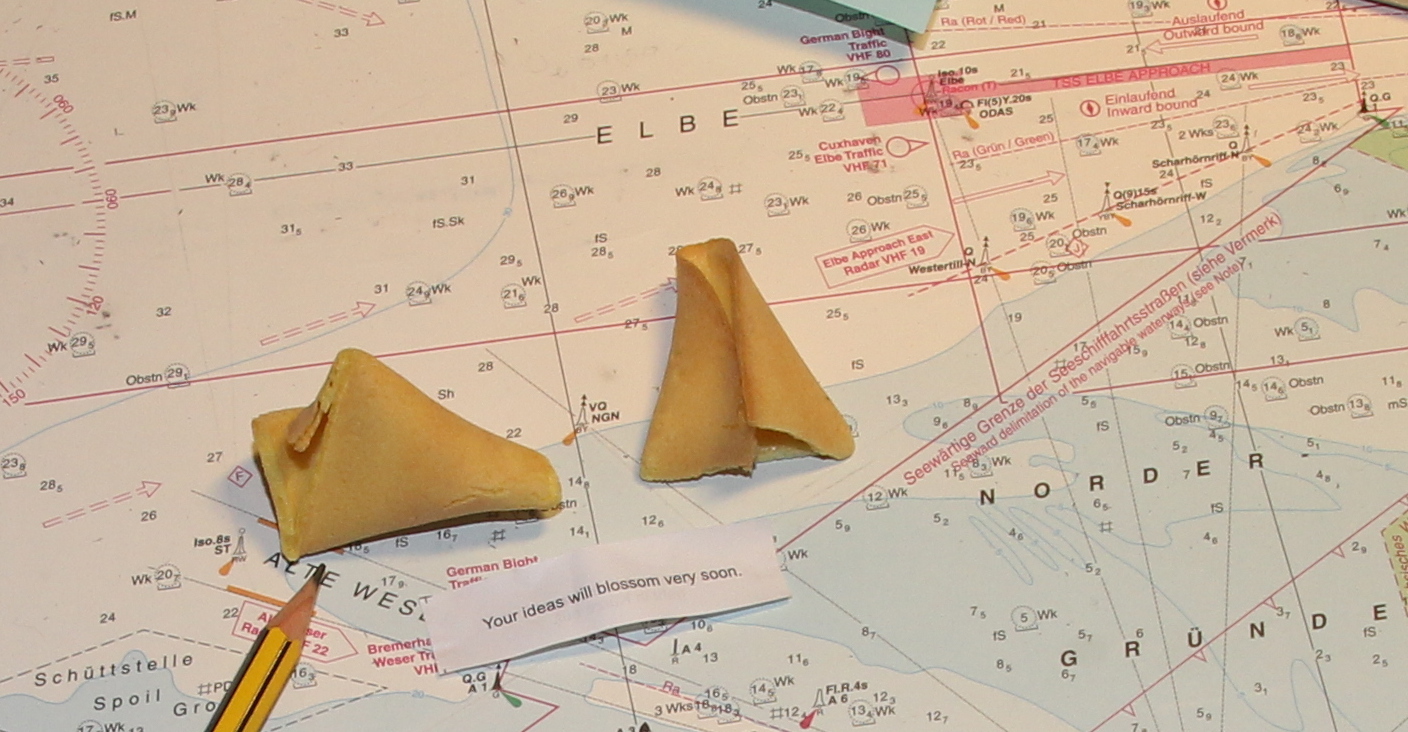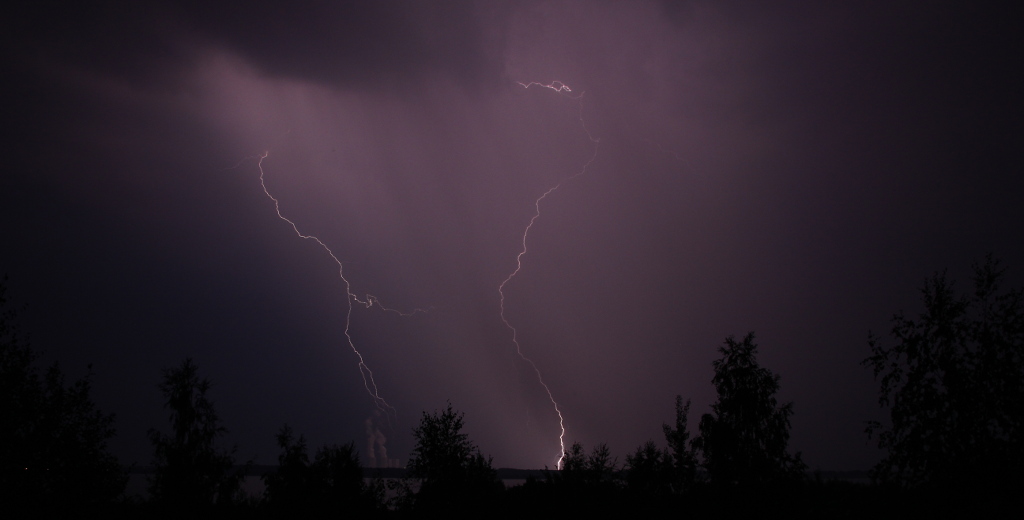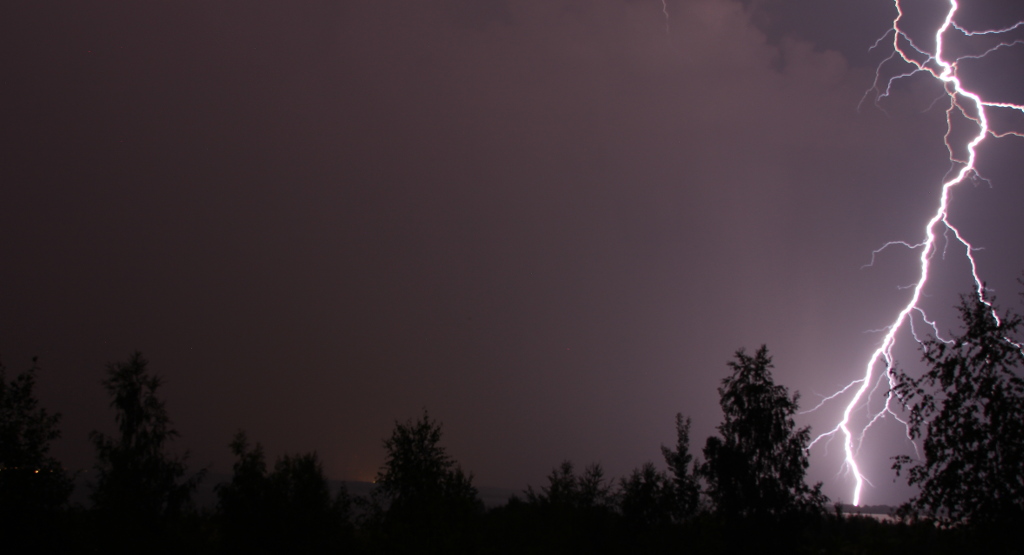So yeah, there is stuff worth blogging about coming up. Some approve some call me crazy. Same old, same old. I made a habit of only writing about stuff I will definitely do (or which I already did) so stay tuned another month or so until I finish the preparation phase and finally set things in motion. Only one thing is pretty sure: 6 months with almost no work contracts. The rest is subject to change…
Category Archives: travels
Lightning at Zwenkauer Lake
Another night at my favourite lake. An unforeseen Thunderstorm strucks and by coincidence I have got a SLR and a tripod handy.
The first pic is a lucky shot toying around with bulb mode. My idea was to put the camera on long exposure and that bulb mode would stop exposing when enough light has hit the sensor. Didn’t work out, I’m unsure why. So I set the camera for 15-30 seconds of exposure on program mode, 100iso, manual focus and continuous shooting (“intervalometer” feature of the awesome “magic lantern” firmware). The result: around 60 black pictures and the second pic of this post.
The times are a’changing….
Odo: 305208 Location: Zwenkauer Lake, Germany
“Lately” I read some books about sailing. Mostly while camping at my favourite lake near Leipzig.
Some volumes of cap’n fatty goodlander, “The self sufficient sailor” by lin&bill parde0y and “Sailing alone around the world” by joshua slocum (free audio book!) . It’s been like time travel. Josh sailed in the 18hundreds so it’s quite clear stuff was quite different back then.

Slocums “Spray” (still sloop rigged, later he shortened the main boom and added a second mast (mizzen?!)
Fatty is still sailing so he tells old yarns but gives advice based on today. The Lin&Bill wrote their book in the seventies and revised in in 1997. Plenty of advise is still up to date, but in some places it’s kinda weird. Cited from memory:
They ran a ship without an engine because engines are freaking expensive, break all the time and pollute the environment. Pollutions&pricing is still an issue for sure, but I guess the reliability kind of changed. I’m not familiar with boat engines but most car engines which have reputation for being virtually indestructible are from the seventies & eighties, like for example the merc m102, m111, om602, … Older engines suck because production processes were not advanced enough to get the precision and quality of material was not good enough to produce a durable engine. And because of their bad fuel economy. Newer engines are optimised on fuel economy at all costs, especially reliability is not so important any more because people have the tendency to not buy new stuff while the old stuff runs fine..
Lin&Bill ran a ship without an electrical system. Only some battery operated appliances like quartz clocks (to use with the sextant for navigation), some flash-lights and a radio/stereo. This one blew me away at first, but well, I might have done the same back then. No Computers, no digital cameras, no VCR, no halfway portable TV, no GPS, no AIS, no cellphone/mobile broadband, hell there wasn’t even internet. On top of that crappy/expensive batteries, solar cells, … Yeah, I would have done the same, there was no real benefit of an electrical system.
“The anchor light will burn for 30 hours on one-quarter pint of fuel without refilling— that’s efficiency! Compare that to the diesel fuel and noise required to generate enough electricity to run an anchor light for the same period.”
Yep, that was before LEDs for sure. Let’s consider a 8 Watt high power (three nautical mile visibility) model. 240 Watt@12V are 20Ah. Let’s say our (tiny) engine has a (tiny) 60A generator, that’s 20 min of running. The idling engine probably consumes half a litre of diesel per hour, so the electrical light uses about a one-third pint of fuel. There are also small anchor lights (2km claimed visibility) which just consume 0,1A / hour, totalling 3Ah in 30h / 5min running time of the engine / 50ish ml of diesel or a-tenth of a pint. Same ballpark for the big gun, distinctively outperformed by the small light. How come? Well, kerosene lamps squeeze out 0,25lm/Watt of light, LEDs 80-120lm/Watt (or thereabouts). 125ml (1/4 pint) kerosene has 34MJ/l, or 4,25MJ/quarter pint. That’s 1,19 kWh (0,28kWh/MJ) in 30h or 40 Watt in one hour. So 10 Lumen for the kerosene lamp, around 10 Lumen for the small LED and a whopping 800 Lumen for the 8W LED. Yeah, LEDs did change the game completely…
Anyways, a decent solar panel array should produce the needed energy in an hour (big light) or a couple of minutes (small light).
But there was still lots of good advise which wasn’t outdated: If your electronics fail you can’t crank your engine. Today that’s actually not that much of a problem any more because you utilise two separate battery banks, one for “camping” and the other dedicated to cranking the engine. So if one goes flat you still have the other. But if your starter breaks you are fucked. I didn’t realise that yet because with cars you can always push / roll start them (manual transmission) or tow start them (yet another disadvantage of automatic transmission). Back in the days of civil service I did that for a whole weekend while taxiing mothers with their children. Living in the mountains it’s quite easy to park downhill. Just turn on the ignition, shift to second gear, push down the clutch, release the breaks, accelerate and then pop the clutch. Voilà, a running engine (disclaimer: might fuck up your catalytic converter and without the engine running power steering and most importantly the brake servo isn’t working). Some folks thought that was a rather weird practise but hey, it beats walkin’…
Diving down and turning the prop by hand doesn’t sound like a good idea at all so I got to remember this. They wrote that there are some kind of hydraulic starters and spring loaded starters on certain heavy duty equipment, I think I should look into that. Especially adding a hydraulic pump to the engine would open a wide array of possibilities.
“Very few people quit cruising because of storms, bad weather, or calms. It’s the little hassles like getting phone calls through, cashing checks, or finding your mail and a hot shower that annoy you most. But then, if cruising were easy, everyone would be doing it”.
Well, welcome to the future. Satphones, 3G/4G, Email, ATMs and widely accepted credit/debit cards, online banking, … are benefits of living today. And watermakers + boiler make even the hot shower possible…
“Then Larry cuts a strip of strong, stiff plastic about inch by 1 ½ inches wide and 4 inches long and uses fiber-glass reinforced tape to attach it to the end of the flashlight ( Figure 28.2 ). Presto— a flashlight you hold with a mouth grip.”
Yeah, old timers 🙂 These were the days before you could buy cheap headlamps almost everywhere.
Sailing Licenses in Germany
I want to sail. There are lakes nearby where people are sailing and I want to sail the ocean as well. And I want to be able to charter a yacht. So what is the fastest&cheapest way to get the necessary licenses? Probably moving to another country…
To sail the lake nearby I need the SBF Binnen Segeln (sailing inland license). To get that you have to make a fully fledged course with 10+ hours of practical sailing on a real boat. If you already got the SKS Segeln (advanced offshore sailing license you need to charter boats) you get the inland licence almost for free, all you have to do is to pass the theoretical exam and pay a small fee. One may ask why we need an advanced license to charter boats offshore / why the SBF See Segeln does not suffice? Well, the offshore sailing license is not a fully fledged course but just a theoretical exam for sailing and a practical exam for motoring. So yeah, you get the license to sail on the ocean without ever touching an actual sailboat (you have to look at pictures though) but you need a fully fledged course on sailing to sail on the small lakes around town. Dafuq?
What kind of boat would I like?
First things first, I’m nowhere near to start a journey. But it seems my life in the next period of time might be laid out in a way which will empower me to start in the not too distant future. Anyways, let’s just start to think what I would like: It should:
- house two persons comfortably and squeeze in four
- cross the Atlantic ocean
- have a watermaker
- have solar panels for normal power consumption
- (maybe detachable) generator for powertools
- central heating for operation colder regions
- dive compressor for filling tanks
- Satphone
- Radio (as in communicating with other ships, not receiving radio broadcasts)
- self steering (autopilot and/or windvane)
- safety gear not mentioned here
At first glance there are three problems:
- Money (all this stuff is extremely expensive)
- A really crammed engine bay
- Safety concerns for diving since you need at least three persons to dive safely (one buddy team of divers and one person topside to move the boat if the divers can’t return on their own (strong current, accident, whatever).
The first rule of doing things on a budget is to strip everything which is not really really needed:
- house two persons comfortably and squeeze in four
- cross the Atlantic ocean (it should have a hull being capable to do that but doesn’t need all the equipment upfront
- have a watermaker luxury, be patient until one comes up for cheap
- have solar panels for normal power consumption
- (detachable) generator for powertools strongly depends on the place where I work on the boat whether it’s really necessary
- central heating for operation colder regions only if I have to life on the boat permanently
- dive compressor for filling tanks luxury…
- Satphone only for crossing oceans
- Radio (as in communicating with other ships, not receiving radio broadcasts)
- self steering (autopilot and/or windvane)
- safety gear not mentioned here
Hmm, I guess I just saved myself around 20 grand…
But there are a couple of things I should look for
- spacious engine bay which holds a sturdy and slightly overpowered engine (so I can use it to directly power the watermaker and generator)
- I should start to hang out at boatyards and maybe help people to install new stuff to score cheap used/slightly broken stuff
- opportunity to learn how to outfit and sail a largish vessel



